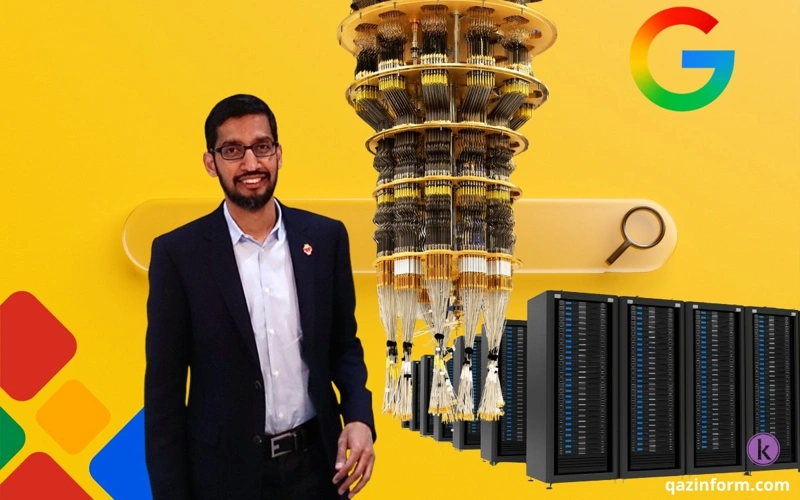Google’s Willow chip hits 13,000× speed boost over classical computers
Google says it has achieved a major milestone in quantum computing, claiming that its latest processor has solved a complex problem far faster than any known supercomputer, Kazinform News Agency correspondent reports, citing Nature.

The achievement centers on a new algorithm called Quantum Echoes, which ran on Google’s Willow quantum chip. The chip, composed of 105 superconducting circuits that function as quantum bits, or qubits, reportedly performed calculations 13,000 times faster than the best available classical algorithms on one of the world’s fastest supercomputers.
“This new algorithm can explain interactions between atoms in a molecule using nuclear magnetic resonance, paving a path toward potential future uses in drug discovery and materials science. This breakthrough is a significant step toward the first real-world application of quantum computing,” said Google and Alphabet CEO Sundar Pichai on social media X.
New breakthrough quantum algorithm published in @Nature today: Our Willow chip has achieved the first-ever verifiable quantum advantage.
— Sundar Pichai (@sundarpichai) October 22, 2025
Willow ran the algorithm - which we’ve named Quantum Echoes - 13,000x faster than the best classical algorithm on one of the world's fastest… pic.twitter.com/hTXl9s21Hh
The Quantum Echoes algorithm detects subtle quantum links between distant qubits - connections that are often lost due to interference within the system. The researchers compared the process to “mapping a cave using echoes,” where a sequence of forward and reverse operations reveals how quantum particles interact.
By simulating the magnetic properties, or “spins,” of atomic nuclei, the method allows scientists to predict molecular structures beyond what conventional nuclear magnetic resonance (NMR) techniques can achieve.
So far, Google’s team has demonstrated the method on relatively simple molecules such as toluene, whose properties are already well understood. Extending the algorithm to more complex systems, such as large biomolecules or proteins, will require hardware capable of reducing noise and correcting quantum errors.
While Google’s latest results have drawn attention for their technical sophistication, the broader scientific community remains cautious. Quantum physicist Dries Sels of New York University said that although the study does “a serious job” of testing classical alternatives, it does not conclusively rule out the possibility that a faster classical algorithm could exist.
“Personally, I don’t think that’s enough to make such a big claim,” he told Nature.
Others agree that the announcement, while promising, may still be far from commercial impact. James Whitfield, a quantum physicist at Dartmouth College, described the result as “an impressive technical advance,” but said it was “a bit of a stretch to think how this is going to suddenly solve some economically viable problem.”
Earlier, Kazinform News Agency reported that the Royal Swedish Academy of Sciences had awarded the 2025 Nobel Prize in Physics to John Clarke, Michel H. Devoret, and John M. Martinis for quantum mechanic tunnelling.
